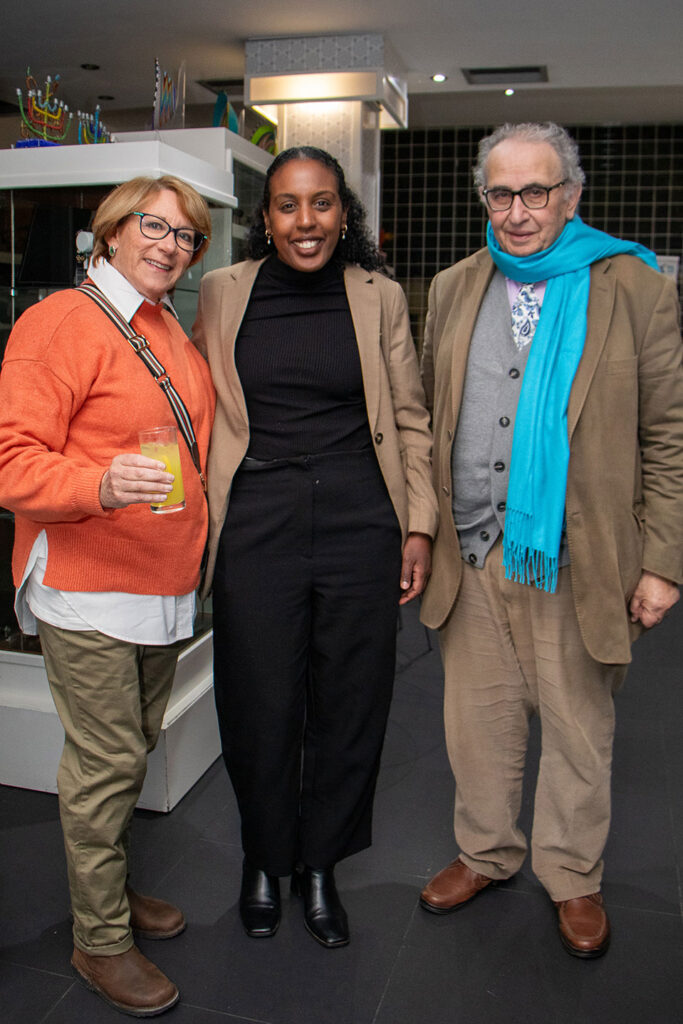As a leader in the management of national water supplies, Israel is using its expertise to assist people elsewhere to maximise water resources with a view to creating a sustainable future.
And this includes our own country. As we know only too well in Cape Town, climate change is having a dramatic effect in many parts of the world, resulting in severe drought, followed by floods. Add to that the impact of polluted water that causes the blight of cholera in many parts of the country.
A recent visit to South Africa by a delegation from the Israel Water Authority, organised by the KKL-JNF, highlights what can be achieved in the sustainability of water resources for the years ahead when there is proper planning and management.
Over the years, Israel has developed a sophisticated approach to understanding how to manage water resources — a focus driven largely by the reality of significant desert areas within the tiny state, as well as the increasingly lower rainfall figures that the country experiences. It shares its learnings among its Middle Eastern neighbours, and with countries on the African continent. Through the efforts of the Agency, significant quantities of water are sold to Jordan, a country with severely constrained supplies of water, helping to cement the peace treaties that the two countries have signed. In addition, previously unthinkable contact has been made with Bahrain, Oman, the UAE, and Sudan — all driven by concerns about sustainable supplies of water.
According to Yechezkel Lifshitz, Director General and Chairman of the Board of the Governmental Authority for Water and Sewage of Israel, “Israel’s success in the management of water resources goes back to the early years of the State. In the 1960s, for instance, it became clear that an intervention was needed to turn the town of Eilat in the Negev Desert into a viable location for people to live and work in. It was then that a major desalination plant was constructed, and today Eilat has a constant supply of water.”
Access to reliable water supplies has also allowed the country to develop a thriving agricultural sector. Whereas the country initially used potable water for all water needs, a shift has been made to the use of treated sewage for agriculture and other sectors. “Now, we use 85% of the country’s treated sewage for the growing of food,” Lifschitz explains. “This is a far higher percentage of treated sewage use than in other countries.”
In addition to assistance with the management of water resources, Israeli experts work on projects organised by the KKL-JNF in various African countries, such as Kenya, Chad and Ethiopia. Many of these projects are led by Yehonatan Bar Yosef, Project Manager — Water Quality, Management & Ecology.
In the South African context, the Israeli delegation met with various local government authorities, but our national government chose not to engage with the experts. “It is indeed sad that our government chooses this route, which is to the detriment of the citizens of the country,” comments Advocate Jonathan Silke, Honorary Life President of the SAZF Cape Council.
Water management is yet another of Israel’s miracles. And the country has demonstrated its willingness to share its expertise across the world.

SA Zionist Federation – Cape Council – Facebook | Twitter | Instagram
• Published in the August 2023 issue – Click here to start reading.
• To advertise in the Cape Jewish Chronicle and on this website – kindly contact Lynette Roodt on 021 464 6736 or email advertising@ctjc.co.za. For more information and advertising rate card click here.
• Sign up for our newsletter and never miss another issue.
• Please support the Cape Jewish Chronicle with a voluntary Subscription for 2023. For payment info click here.
• Visit our Portal to the Jewish Community to see a list of all the Jewish organisations in Cape Town with links to their websites.
Follow the Cape Jewish Chronicle: Facebook | Instagram | Twitter | LinkedIn










